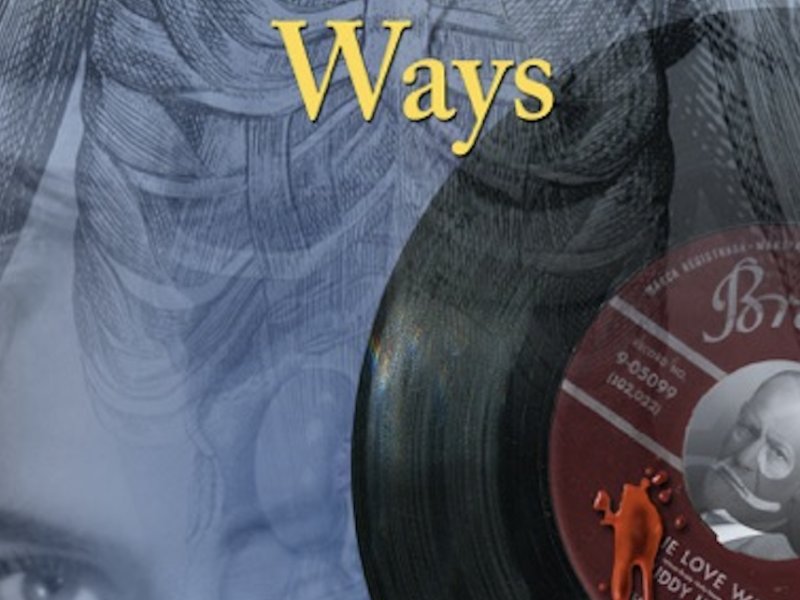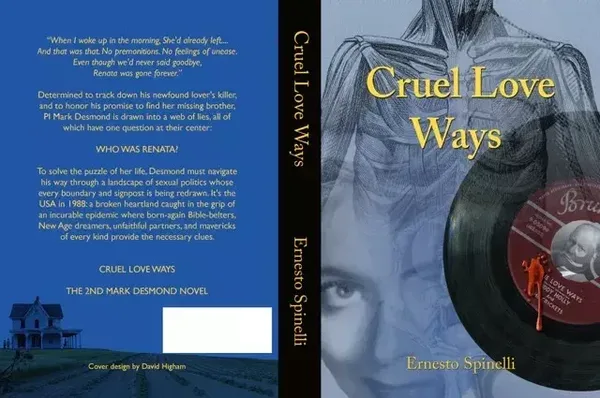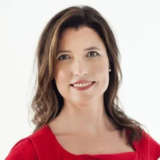
Experimentation, play and being both an expert and novice
I am a professor of existential therapy. Over the years, I have published several books and numerous papers on the subject.
Writing has always come naturally to me and academic publishing, thankfully, has followed with similar ease. I’ve been extremely fortunate that my writing has always been positively received the world over and that interest hasn’t let up. It really is wonderful that people continue to engage with my ideas. For me, writing is more a necessity than a like. Akin to being on some sort of life-long medication that's necessary to keep life stable and healthy.
Not many people know that I have been engaged in a different sort of writing for pretty much my whole of my adult life - mainly (unpublishable) novels.
A couple of years ago, though, I finally found the courage (some might say arrogance) to take the leap and shift my focus to writing publishable fiction. I realised that writing fiction was something that really mattered to me in that it was a much more significant part of my life than I'd suspected. Seeing that, my choice was obvious.
I am a voracious reader of crime novels - mainly of the hard-boiled genre - and so I set about creating Private Eye, Mark Desmond, as my recurring character.
Published and unpublished
Once I completed my first novel, Scorpio's Children, I imagined that, as a published author, and a reasonably successful one, it would be relatively easy to find a publisher. Ha! I very quickly learned that the worlds of fiction and nonfiction are very, very different.
Not only was I a 'nobody' in this new fiction world I was trying to enter, far worse I was an ageing nobody who was never going to have the years left in him to produce 20, 30, 50 novels for his publishing house. It was a good, if painful, lesson in 'de-swelling one's head'.
Sometimes, that’s how the process of learning, of trying something new, must start.
Critical friends
I persevered. Luckily, at the time I was working with an online writers' group and was able to address the issues raised and to receive some very sound advice. For one thing, I was asked, was I willing to reconfigure my self-image so that I would be more willing to accept, even embrace, this new writerly 'me' who was a complete unknown? Further, could I actually see the benefit in doing so such that, for instance, I could be much freer in both how I wrote and what I wrote via this new sense of self?
Short answer: it's an ongoing process. And it is deeply liberating, exciting, disturbing, surprising, and lots more 'ings' than I have space to mention.
I am glad I persevered. Scorpio’s Children is now published and I’m delighted to say that it’s received five star reviews on Amazon. The second novel - Cruel Love Ways - is out at last and ready to buy. And I'm currently planning out the third.
I'm still a relative 'nobody' in the world of fiction, but being so has actually provided a mental space to discover and experience and play with the possibilities of 'being me' anew.
Understand that setbacks are inevitable. The writing group I was in could be quite critical in their comments and reactions. But they were only making those comments because they cared and saw possibilities that I hadn't yet seen. I could have taken their comments as setbacks or as challenges. It wasn't always easy, but sticking with the challenges certainly stimulated creativity. Realizing that I was considered to be too old by most publishers was unpleasant to discover, and was certainly partially a setback. But it also clarified for me what most mattered to me with regard to writing fiction. Making loads of money and having millions of readers would definitely be nice, but it's not what I'm doing it for. I think that once you're clear(er) as to what makes something matter, you're less likely to experience disempowering setbacks.
The Danish philosopher, Søren Kierkegaard, argued that we feel most alive when we find the courage to leap into the unknown. I suspect that he was right. Find out for yourselves.

1. You can be an expert and a rookie
We work so hard to reach that hallowed goal of being regarded as an expert that the idea of reaching it and being a beginner, a total novice can be unsettling. Developing coping strategies and mastering the art of letting go of firmly held beliefs will ease the transition. Coaching can help.
2. What is your ‘and’?
Many of us find comfort and reassurance in the idea that we are experts in one thing, but challenge yourself to answer the question: what is your ‘and’? Ernesto is a world-leading proponent of existential therapy and a novelist (and a coach and many things beside). Think about yourself as a polymath in potentia. Having as many ‘ands’ as possible will lead to you having a much fuller, richer life. A good starting point is to consider the life you want to live.
3. Find critical friends
In any aspect of your life, you will only develop with support. Like Ernesto found in his online writing group, find critical friends who will be both your cheerleaders and your challengers. Coaching can offer that support for life transitions.
4. Think about the thing you love in a different way
To quote Jane Austen, ‘There are as many forms of love as there are moments in time’. Take writing as an example. You might be a pro at writing content in Plain English, but have you considered writing poetry? You might rate yourself for penning witty Christmas card greetings, but have you considered taking up calligraphy? Challenge yourself to think about the thing you love in a different way.
5. Take the leap
It is never too late to take the leap, experiment or learn something new. Vera Wang was a figure skater before deciding at age 40 that she wanted to be a wedding dress designer. The late Alan Rickman was a graphic designer before finding international fame as an actor. Follow your passion and take the leap to uncover another exciting path for yourself.
Related Articles

